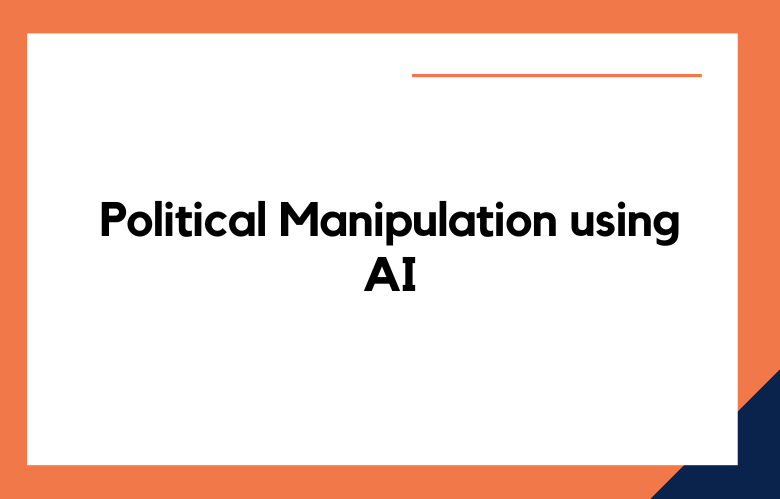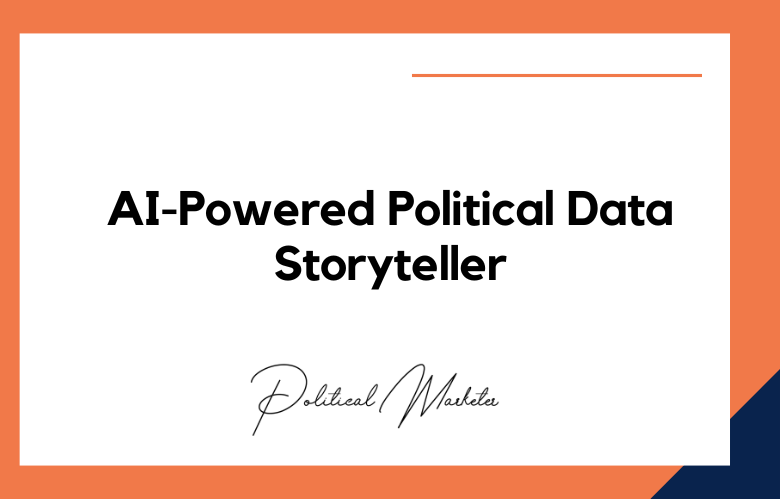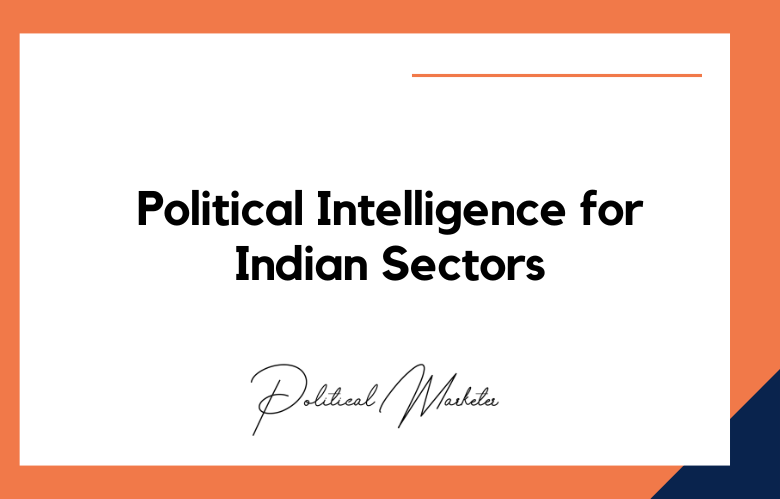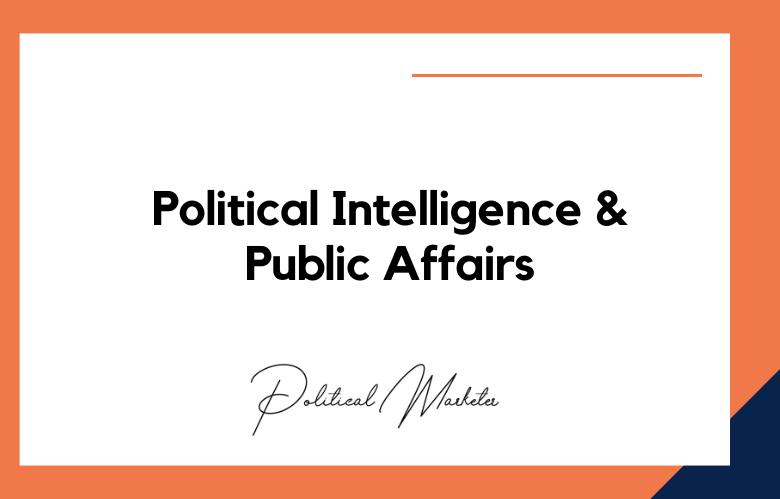Artificial Intelligence (AI) has become a game-changer for many fields and industries, including politics. AI in politics is about gathering information, analyzing data, and predicting trends, which can help politicians make informed decisions.
However, the application of AI in politics has also opened up new and dangerous opportunities for political Manipulation. We will explore the expectations and threats of political Manipulation using AI.
Artificial Intelligence (AI) has become an integral part of our daily lives, from personal assistants like Siri and Alexa to self-driving cars and medical diagnostics. However, with the increasing use of AI technology in politics, there have been rising concerns about the effects of political Manipulation through AI.
The potential power of AI in political Manipulation has the potential to disrupt democratic systems, influence election outcomes, and manipulate public opinion. Delves into the expectations and threats of political Manipulation using AI.
What is Political Manipulation using AI?
Political Manipulation using AI uses advanced technologies such as artificial intelligence algorithms, machine learning, data mining, and natural language processing to manipulate public opinion and influence political outcomes.
This Manipulation can occur through social media platforms, news articles, targeted advertising, and other means of communication that integrate AI algorithms.
AI-based political Manipulation involves collecting, analyzing, and exploiting vast amounts of user data. This data creates psychological profiles of individuals and groups, categorizing them into various political affiliations, values, beliefs, and interests.
Once these profiles are created, AI-based political Manipulation can generate highly personalized messages, news articles, and advertisements tailored to individuals’ and groups’ psychological profiles.
Deepfakes and Political Misinformation
Deepfakes have become a new frontier for political misinformation, significantly threatening democratic systems and election integrity.
These digitally altered videos, images, and audio are so convincing that they can generate false narratives and spread misinformation on a large scale, ultimately damaging the reputation of people, institutions, and governments.
The technology behind deepfakes is quite sophisticated, utilizing machine learning algorithms and artificial intelligence systems to create fake media content that appears genuine.
This creates a scenario where even the most trustworthy sources can be manipulated and distorted, causing a ripple effect of confusion and deception.
The impact of deepfakes on political campaigns has been substantial, as they allow opponents to smear each other and generate public outcry against specific individuals.
For instance, deepfakes have been used to accuse politicians of committing crimes they didn’t commit or to manipulate their statements to create false narratives.
Safeguarding Democracy Against AI
With the rapid advancements in artificial intelligence, there is growing concern about the potential ramifications of these technologies on democratic societies.
While AI can potentially improve many areas of society, there is a danger that it could also be used to undermine the principles of democracy, such as free and fair elections, freedom of speech, and the protection of individual rights.
One of the primary concerns is AI’s potential to manipulate public opinion through fake news and disinformation campaigns.
This could be done by creating highly targeted messages to sway a particular group of voters in one direction or another. With social media being an increasingly important platform for political communication, the potential for AI to spread such disinformation is significant.
Privacy Concerns in AI Politics
The rapid advancements in Artificial Intelligence (AI) have revolutionized the world of politics. However, these advancements have also given rise to severe concerns surrounding privacy, data protection, and abuse of power.
AI technologies, such as machine learning algorithms, predictive analytics, and facial recognition systems, have the potential to collect vast amounts of personal data and impose a surveillance state that threatens the privacy rights of individuals.
One of the primary privacy concerns associated with AI politics is the indiscriminate collection and use of personal data by governments and political entities. This data can include information on individuals’ political views, social interactions, and personal habits.
The indiscriminate use of such data can undermine the principles of democracy and jeopardize citizens’ freedom, as political actors may use the information to influence public opinions and manipulate election results.
AI Ethics in Political Influence
Artificial intelligence (AI) ‘s influence on political decision-making has become a concern for many individuals worldwide. With the increasing political polarization and the use of social media platforms as tools for political propaganda, governments and political parties have started leveraging AI algorithms to manipulate and influence public opinions.
AI is being used to micro-target specific groups of individuals with personalized political messaging, which can shape their perception of specific candidates, issues, or policies.
This political influence is often targeted at vulnerable groups with lower political engagement or education levels. These tactics can be harmful to democratic values and principles and can lead to political outcomes that do not reflect the valid will or interests of the people.
Ensuring Transparent AI Politics
Artificial Intelligence (AI) is increasingly integrated into our daily lives, from customer service chatbots to automated decision-making systems in industries such as healthcare and finance. However, the lack of transparency and accountability in AI decision-making has raised concerns about biased outcomes and potential discrimination.
To ensure transparent and unbiased AI politics, there is a need for clear guidelines and regulations governing the development and deployment of AI systems.
This includes ensuring that data used to train AI models represents diverse populations and that the algorithms are transparent and explainable.
In addition, AI systems should be overseen and monitored to identify and mitigate potential biases or errors.
This can be achieved through regular audits and testing of AI systems and involving diverse stakeholders in developing and deploying AI systems.
Political Manipulation using AI: Expectations
The rise of Artificial Intelligence (AI) has brought about numerous benefits and opportunities across various fields and industries. However, there is also a growing concern about its potential misuse, particularly in politics.
Using AI, political Manipulation uses advanced computing technologies to influence public opinion, sway elections, and support particular political agendas.
AI algorithms are designed to analyze vast amounts of data, including social media posts and online activity, to determine patterns of behavior that can be exploited for political gain.
One of the most significant expectations of AI-based political Manipulation is its potential to increase the spread of fake news and misinformation.
With the help of AI, such content can be targeted to specific groups and individuals to achieve desired outcomes, such as sowing distrust or shaping public opinion.
AI-based political Manipulation can be used to create bots that can flood social media platforms with propaganda or partisan content, influencing many people’s opinions.
Enhanced Targeting and Engagement:
Enhanced targeting and engagement are critical aspects of any successful marketing campaign. These techniques have evolved significantly in recent years, with the advent of sophisticated data analytics tools and the rise of social media platforms.
Today, companies have access to a wealth of consumer data that can be used to identify and target specific audiences precisely.
This includes demographic information, purchase history, online behavior, and social media activity. By leveraging this data, marketers can create highly targeted campaigns that are more likely to resonate with their intended audience.
In addition to data analytics, social media has emerged as a new frontier for marketing engagement. Platforms like Facebook, Instagram, and Twitter offer a range of tools and features that allow companies to engage with consumers in new and innovative ways.
For example, brands can now use chatbots and messaging apps to interact with customers in real-time, providing personalized recommendations and customer support.
Data-Driven Decision-Making:
Data-driven decision-making involves utilizing relevant and reliable data to inform strategic business decisions. In a business landscape that is increasingly complex and volatile, it is essential to make objective decisions that are grounded in data-driven insights.
By leveraging large sets of structured and unstructured data, businesses can make informed decisions that lead to improved outcomes and better overall performance.
The importance of data-driven decision-making cannot be overstated, as it enables businesses to identify critical patterns and trends that can guide decision-making. Companies can better understand their customers, competitors, and industry trends by analyzing data from various sources.
With this knowledge, businesses can strategically allocate resources, optimize operations, and develop targeted marketing campaigns to drive revenue and growth. This approach is especially vital in highly competitive industries, where businesses must constantly evolve to stay ahead.
Efficient Governance:
Efficient governance is crucial for the effective functioning of societies. It involves appropriately managing and allocating resources, prioritizing public needs and services, and ensuring accountability and transparency in decision-making processes.
Efficient governance is a multi-faceted and complex concept that requires integrating various elements, such as effective leadership, policy-making, service delivery, and citizen engagement.
At the heart of efficient governance lies the need for strong and capable leadership. Leaders committed to serving the public interest and with a clear and achievable vision can inspire and motivate their followers and drive positive change.
Influential leaders can also foster a culture of innovation, collaboration, and transparency, which can help promote good governance practices and enhance public trust and engagement.
Optimized Campaign Strategies:
Optimized campaign strategies use analytics and data-driven insights to create effective marketing campaigns that resonate with target audiences and drive desired outcomes.
These campaigns entail the use of various tools and techniques to analyze market trends, consumer behavior, and competitor strategies to inform the optimization of messaging, targeting, and media placement.
One critical component of optimizing campaign strategies is the use of advanced analytics tools to gain actionable insights that can be used to improve campaign performance.
These tools may include predictive modeling, audience segmentation, and real-time data analytics. By leveraging these tools, marketers can deeply understand their target audience’s preferences and behaviors and tailor campaigns accordingly for maximum impact.
Political Manipulation using AI: Expectations and Threats
In recent years, the use of artificial intelligence in the political realm has become a significant concern for many individuals and organizations. While AI has the potential to make certain aspects of the political process more efficient and accurate, its use can also contribute to the Manipulation of public opinion and the perpetuation of false information. In this way, AI has become a tool for political Manipulation that poses severe threats to our democracy and society.
One of the most significant threats posed by AI in politics is the ability to generate and distribute false information, or “fake news.” Through AI, individuals and groups can create highly convincing yet entirely fabricated news stories that spread quickly and widely across social media platforms. This can easily sway public opinion, create confusion and mistrust among voters, and influence election outcomes.
Disinformation and Fake News:
Disinformation and fake news have become rampant in the modern digital age, particularly with the rise of social media.
Misinformation, in the form of fabricated news stories, false claims, rumors, and propaganda, has been deliberately spread across various platforms to manipulate public opinion and cause societal disruption.
According to a study by the Pew Research Center, approximately two-thirds of American adults use social media as a primary source of news; this has made it easier for users to fall victim to fake news and disinformation campaigns.
One of the most significant challenges in tackling this issue is distinguishing reliable information from fake news and propaganda.
The spread of disinformation through social media has been primarily facilitated by bots, trolls, and automated accounts that use the algorithms of these platforms to amplify their reach.
Moreover, the short attention span of users and the need for immediate gratification have further added to the propagation of fake news, as users tend to share and amplify sensationalist or provocative news stories without fact-checking.
Microtargeting and Manipulation:
Microtargeting is a sophisticated technique in advertising and political campaigns that prioritizes individualized communication.
This approach combines extensive data analysis with machine learning to accurately predict specific groups’ and individuals’ preferences and behaviors. The data can come from various sources, including public records, social media activity, and consumer purchasing behavior.
Microtargeting can be highly effective as it allows for a tailored message to the individual’s interests. This approach can lead to higher engagement rates and a greater likelihood of desired actions, such as voting for a candidate, purchasing a product, or signing up for a service.
However, microtargeting raises ethical concerns, especially in politically charged contexts. Some argue it can create an echo chamber for specific groups and exacerbate polarization by delivering messages reinforcing pre-existing beliefs and biases.
In addition, there is the potential for manipulative tactics to be employed, and individuals may not even be aware that they are being targeted or why.
Erosion of Privacy:
Erosion of privacy has become increasingly problematic in modern times due to the proliferation of technology and the Internet. People share their personal information more willingly or unknowingly, leading to potentially serious consequences.
From social media platforms and search engines tracking and recording users’ browsing habits to companies buying and selling user data for targeted advertising, privacy has taken a backseat to profit. In some cases, governments have also been accused of mass surveillance of their citizens, further violating their privacy rights.
Furthermore, the erosion of privacy has created a host of security concerns, where personal and sensitive information is at risk of falling into the wrong hands. Identity theft, fraud, and hacking are potential consequences of an unregulated cyber world.
Moreover, with the rise of intelligent devices and the Internet of Things, everyday objects such as cars and household appliances are now connected to the Internet, making them susceptible to hacking and remote access.
Cybersecurity Risks:
Cybersecurity risks pose a significant threat to individuals, businesses, and nations. With the proliferation of technology, the potential for hackers to exploit vulnerabilities and breach security measures is at an all-time high. These risks come in various forms, such as social engineering attacks, malware, phishing attempts, and ransomware attacks.
Social engineering attacks involve tricking individuals into divulging sensitive information such as passwords or personal data. Cybercriminals carry out these attacks through emails, phone calls, and text messages. Malware is another significant risk.
The software is programmed to damage, exploit, or infect computers and data networks. Unbeknownst to the user, these programs work in the background and can lead to data theft or damage.
Algorithmic Bias:
Algorithmic bias refers to the systematic and often unintentional favoritism or discrimination within algorithms or computer programs. This bias can lead to inaccurate results, perpetuate stereotypes, and create disparities in access and opportunity for specific groups.
One example of algorithmic bias can be found in facial recognition technology. MIT researchers found that commercial facial recognition algorithms were less accurate in identifying darker-skinned individuals and women. This bias can have serious consequences, such as false accusations or arrests.
Another example of algorithmic bias can be found in online advertising. Algorithms used by companies like Facebook and Google can target advertisements based on a user’s demographics, interests, and browsing history.
However, if these algorithms are trained on biased data or assumptions, they can perpetuate stereotypes and limit opportunities for individuals in marginalized groups.
Manipulated Social Media:
Manipulated social media refers to intentionally altering or creating content on social media platforms to advocate for a specific agenda, sway public opinion, or control individuals or groups.
This unethical and potentially harmful practice can take various forms, including spreading fake news, using bots to amplify specific messages or accounts, and creating deepfakes or doctored images and videos.
The consequences of manipulated social media can be significant, ranging from the spread of misinformation and the erosion of trust in journalistic standards and democratic institutions to the exacerbation of social polarization and the incitement of violence.
In recent years, there has been growing concern about the role of manipulated social media in political campaigns, particularly during elections.
Despite efforts by social media companies to combat manipulated content, their success has been limited, and the problem persists.
In addition to external actors seeking to manipulate social media for their purposes, there are concerns about the potential for internal Manipulation by these companies themselves.
For example, there have been reports of social media algorithms favoring certain types of content or accounts over others, leading to concerns about bias and censorship.
Conclusion:
AI can potentially revolutionize politics, but it also poses significant threats. Political parties must be held accountable for how they use AI and the information obtained.
Regulations must be implemented to ensure that AI is used ethically and correctly while upholding privacy and preventing the spread of misleading information.
Political Manipulation using AI has the potential to undermine democracy; hence, all stakeholders must act responsibly in the application of AI in politics.
The rise of AI in political Manipulation is a growing threat to democratic systems and the public’s trust. Developing better regulations and frameworks to prevent political Manipulation using AI is essential.
The responsibility falls on governments, policymakers, technology companies, and–most notably, individuals–to stay vigilant and critically approach political messaging and media consumption.
By recognizing the potential for Manipulation and taking steps to guard against it, we can work towards a healthy democratic society with informed and empowered citizens.
Call: +91 9848321284
Email: [email protected]











